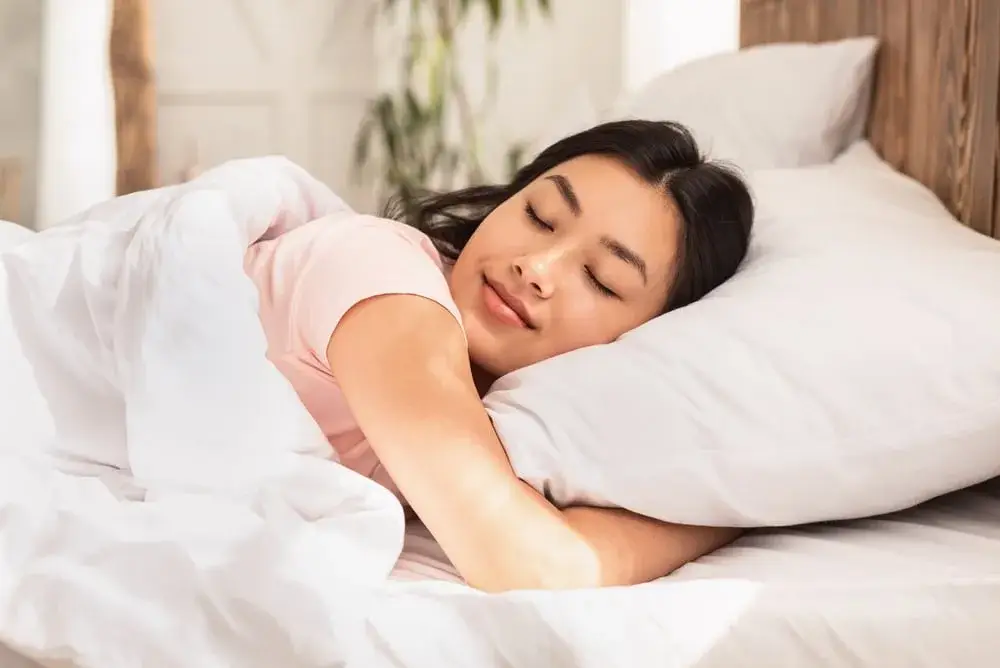At the end of a long day, it can be so tempting to just fall into bed without doing any prep whatsoever. But as you surely know, that’s typically not the best idea. Taking a little time to brush and floss your teeth is well worth your while, and you may also need to wash your face or remove any makeup. But what about your contacts? Can you sleep in contacts? Is it comfortable? More importantly, is it safe? Let’s explore . . .
Can You Sleep in Contacts?
According to the Sleep Foundation, when you sleep with your contacts in, your risk of developing an eye infection is six to eight times higher. This is true of all contacts — soft and hard, prescriptive and cosmetic. For this reason, sleeping in your contact lenses is not recommended.
There are some exceptions to this rule, however. If you wear extended contact lenses that are specifically approved for overnight use, they may be okay to wear overnight. Discuss this with your eye doctor beforehand.
Why Is It Unsafe?
When you sleep wearing contacts, you risk developing a corneal infection. This is an infection that impacts the cornea, the clear layer protecting the colored portion of your eye. You could also develop microbial keratitis, bacterial keratitis, acanthamoeba keratitis, or fungal keratitis which are forms of corneal inflammation caused by an infection. Other possibilities include conjunctivitis (i.e., pink eye), corneal ulcers, and corneal hypoxia. In severe cases, corneal infections can cause permanent eye damage or even vision loss.
So, why does sleeping in contacts increase your risk of developing an infection? Researchers are still studying this, but potential explanations include the following:
- When you blink throughout the day without contacts, you’re rinsing off your eyes with tear fluid, which helps wash away microbes. When you wear contacts, tear fluid isn’t able to reach your cornea as easily. This is especially true when you’re sleeping, as you aren’t blinking. Microbes may reach beneath your contacts, linger there, and cause an infection.
- Wearing contacts reduces the amount of oxygen able to reach your cornea, which can cause corneal damage and impact your eye’s ability to regenerate fresh cells. This lowers your cornea’s ability to protect itself against microorganisms. When you wear your contacts overnight, bacteria have more time available to cause an infection.
What If I Forget?
As soon as you wake up, remove your contacts. If they feel dry and stuck to your eyes, don’t pull at them. Instead, apply eye drops, blink, and try again. Repeat this until the contacts are easy to remove.
After that, avoid wearing contacts for the rest of the day if possible. Wear prescription glasses instead. In addition, pay attention to your eyes and if you notice any concerning symptoms (blurry vision, redness, pain, sensitivity, swelling, itching, burning), contact your eye doctor.
_____
Many contact wearers occasionally forget to remove their contacts before bed. If this happens to you once in a blue moon, don’t worry. But if you find yourself frequently forgetting to take out your contacts, try to establish a firmer nighttime routine.
Finally, keep in mind that even napping while wearing contacts is not considered safe! Remove your contacts before you settle in for a catnap.
Sweet dreams!
Are you looking for a new optometrist for your family? If you live near southwest Missouri, stop by Heffington’s. Since 1975, the Heffington family has been assisting the Springfield community with top-quality eye care and affordable eyeglasses and contacts. To learn more about our products and services, please get in touch with us online, send an e-mail to asktheexperts@heffingtons.com, or give us a call at 417-869-3937 (Optiland location) or 417-882-3937 (House of Vision location).

